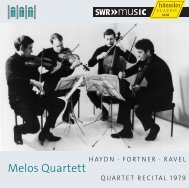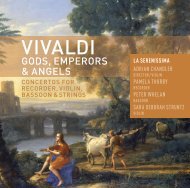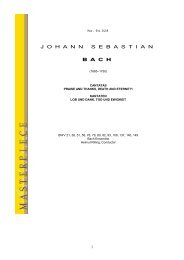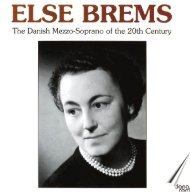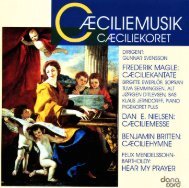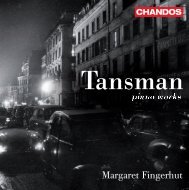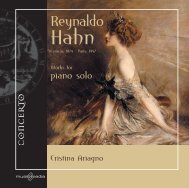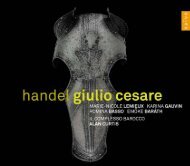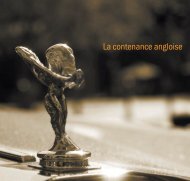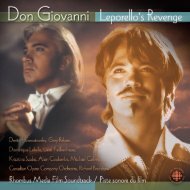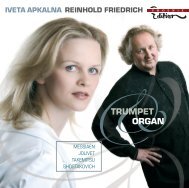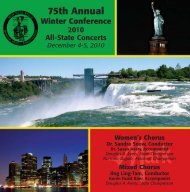gyri gyri gaga - Naxos Music Library
gyri gyri gaga - Naxos Music Library
gyri gyri gaga - Naxos Music Library
Sie wollen auch ein ePaper? Erhöhen Sie die Reichweite Ihrer Titel.
YUMPU macht aus Druck-PDFs automatisch weboptimierte ePaper, die Google liebt.
From a thoughtful text about the state of the world<br />
to the description of rural digestive processes is an<br />
indication of the breadth of Renaissance literature.<br />
The description of strange everyday events indulges<br />
in detail, and the bitter pill of practical religious<br />
and moral application is easier to swallow if it<br />
is sugar-coated with anecdotes from the cloister,<br />
church and tavern. It is the short piece of prose,<br />
which gives the listener (!) a pointed view of the<br />
human, of the all too human. For this the comic<br />
story is particularly suitable with its expression of<br />
emotions and experiences. Nothing can stop the<br />
delight in a story, especially when tabs are kept on<br />
it. The sweeping blow against every conceivable<br />
kind of fool stems from the literature of sermons.<br />
In the song Von Narren we all recognize ourselves<br />
every so often! The stories, which up to now had<br />
been handed down orally and hence material<br />
deemed worthy for literature, were withdrawn<br />
from the rural and urban world, whether it was the<br />
cry of the nightwatchman (Leonhard Päminger)<br />
or the killing of the goose for St. Martin. From<br />
the farewell to the town, to the beloved or<br />
the relative, in the age of gradually increasing<br />
mobility a different and greater status was given<br />
to it (Herzlich tut mich erfreuen – „A warm heart<br />
delights me“). The booze-up in the tavern recalls<br />
the old „carpe diem“, the idolatrous feast is given<br />
priority over the church service. If longing for the<br />
mistress, the sorrows of marriage, meeting with<br />
the grass maiden in the open or unchastity in the<br />
presbytery – the medieval description of the sex<br />
life through „custom“ and oral tradition succumbs<br />
to a permanent transformation. The lyrics of lovesongs<br />
are often widened (in flagrante stories), in<br />
order to expose their protagonists in strong or<br />
euphemistic language to ridicule. The human<br />
emotional state corresponds to its nature. It is<br />
recounted concisely and vividly, euphemistically<br />
and strongly; one can see, smell and feel the ribald<br />
punch-line. The always unknown author (the<br />
composer?) really belongs to the urban culture.<br />
The Latin appeal of the songs – Audite nova!<br />
- increases the banality of the narrative which<br />
follows. The man of letters generally got stuck<br />
into the church as a donkey (Olando di Lasso);<br />
into the world of the peasant, also with jovial<br />
language: the „Auwe ich bin verwundt“ (Oh dear!<br />
I am amazed) or any one of his „outbursts causing<br />
pain“ comes from the language of the court,<br />
not suitable for the agricultural worker. The rule<br />
of thumb is valid: the better known the existing<br />
melodies are the more verses are composed. The<br />
dialogue in direct speech, the comic situation and<br />
its realism enliven the traditional lyric, subject,<br />
structure, vocabulary and phrases and is still<br />
operating in many ways to this day. So there rises<br />
up before our eyes a colourful picture of everyday<br />
life in the early society of modern times, presented<br />
in stories to make one laugh and cry.<br />
Gerhard Hölzle<br />
15



